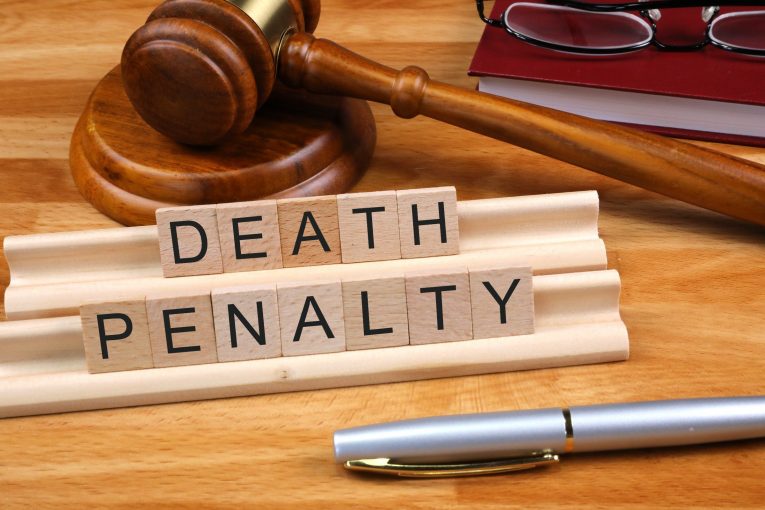

By Maeve Haggerty, Bryan Miller and Leela Bronner
SAN FRANCISCO, CA – Prosecutors Alliance of California (PAC) this week issued a letter announcing its amicus curiae to the state Supreme Court, urging a review in “Office of the State Public Defender et al. v. Bonta (No. S284496), and asking for a hard look at the State’s death penalty rules.
PAC charged, “California’s death penalty system, in which prosecutors play a key role, exhibits troubling signs of racial discrimination in its application,” adding, “evidence alone would justify review here.”
PAC asserts the issues addressed in the petition are particularly important to them, noting in the letter the Alliance “since its inception has advocated for a criminal justice system that fairly and consistently respects defendants’ rights to equal protection under the law.”
In the letter, PAC commented that “review is particularly appropriate because of how many features of the state’s death penalty system open the door to potential racial discrimination,” claiming, “Racial discrimination of the sort observed in California’s death penalty system is antithetical to the state constitution’s equal protection guarantee and threatens to undermine the public trust and legitimacy on which the criminal justice system depends.”
PAC also believes, “Now is the right time and this is the right vehicle for the Court to review these issues, which demand an immediate and systemwide answer.”
According to the letter, “Prosecutors occupy a special position in the criminal justice system and are closely involved in each stage of a death penalty case, including investigating, charging, prosecuting, and sentencing. In exercising their duties, prosecutors must pursue justice both in particular cases and more broadly” and that “as stewards of the criminal justice system, prosecutors must work to safeguard public trust in the administration of justice.”
The Alliance argued, “Ongoing, widespread racial discrimination in the administration of the state’s death penalty is inconsistent with those values and undermines the legitimacy and trust on which prosecutors rely.”
In quoting the American Bar Association, PAC said, “The primary duty of the prosecutor is to seek justice within the bounds of the law. Consistent with that duty, the Alliance’s mission is to advocate for a criminal justice system that comports with the highest standards of justice and fairness—including the California Constitution’s mandate of ‘equal protection of the laws.’”
PAC added, “The petition for review raises serious questions as to whether California’s death penalty system, as administered, complies with that equal protection mandate. Overwhelming studies and statistics, across the state and over many decades, reveal significant and ongoing racial disparities in the death penalty’s application.”
“Prominent Public officials, including the Governor, Attorney General, and several district attorneys, have acknowledged that startling evidence and called for examination of the potential causes,” said PAC, adding, the state Supreme Court “has not had an opportunity to consider the equal protection implications of that troubling, longstanding imbalance,” asserting PAC petition gives the court “a valuable opportunity… to do just that.”
The Alliance stresses a “review is especially appropriate because the death penalty system provides many opportunities for racial discrimination to taint the process.” These opportunities span “from initial investigation to charging to jury selection and beyond.”
PAC notes, “the law permits—indeed, depends on—the exercise of substantial discretion by independent actors” also adding “as valuable and necessary as that discretion may be, it comes as a cost,” noting this cost is “the potential that racial bias, explicit or implicit will affect the outcome.”
The Alliance adds “as central actors in the death penalty system, the Alliance’s members urge the Court to provide guidance as to whether the system comports with the state constitution’s stringent demands. This is the right case in which to resolve that important question.”
“This Court’s ‘Duty (is) to ensure’ the ‘equal protection of the laws’ that the California Constitution guarantees…the Court has recognized” in Briggs v. Brown and Clean Air Constituency v. Cal. State Air Resources Bd. “that exercising its original jurisdiction to resolve the issues of statewide importance is appropriate even if there are alternative paths to review.”
PAC also states that “review via original jurisdiction here is superior to any alternatives, particularly given the fact- and county-specific nature of challenges under Penal Code section 745.”
According to the Alliance’s letter, these issues do not only matter to those accused but also prosecutors “and ultimately to the broader criminal justice system,” further claiming the legitimacy of the criminal justice system “depends on equal and fair application of the laws” and that because of this “[t]he Court should grant review.”
PAC also states, “The law abhors racial discrimination” and, “As this court has recognized, federal and state equal protection guarantees share a ‘core purpose’ of ‘doing away with all governmentally imposed discrimination based on race, thus ultimately helping to create a political system in which race no longer matters.’ California law in particular rejects racial discrimination, including in the criminal justice context.”
The letter adds, “Racial discrimination in the criminal justice context is doubly harmful” because “it not only violates the rights of defendants for whom race plays a role in their conviction or sentencing, but also erodes ‘public respect for… the rule of law.’ The members of the Alliance are particularly concerned about such an erosion of public trust…the lifeblood of the criminal justice system.”
According to the letter, “Two features of California’s death penalty system warrant prompt attention from this Court.”
The first of these features noted in the letter is that “there are alarming indications of racial discrimination in the way the system has operated over many decades.” The second of the features is that “there are many points during a death penalty case in which racial discrimination could affect the outcome.”
Prosecutors Alliance of California wrote, “widely accepted evidence reveals troubling inconsistencies in the death penalty’s application. Racial discrimination is a ‘familiar and recurring evil that, if left unaddressed, would risk systematic injury to the administration of justice’”
The Alliance adds that “as the petition describes, statistics show that California’s death penalty system is far from one ‘in which race no longer matters,” claiming “evident racial disparities in the administration of the death penalty in California are well documented and manifest in two distinct, but related, ways…defendants of color are more often sentenced to death than their white counterparts.”
The letter cites a study that “analyzed homicide convictions between 1978 and 2002 and found—even after controlling for nonracial factors—that Black defendants were up to 8.7 times more likely, and Latino defendants up to 6.2 times more likely, to receive death sentences as compared to defendants of other races. PAC states that “unfortunately these disparities did not stop in 2002.”
According to PAC, “Another study from 1979 to 2018 found—again, even after controlling for race-neutral variables such as county size, demographics, and annual homicide rate—that Black suspects were more than twice as likely, and Hispanic suspects one-and-a-half times as likely to receive death sentences as compared to white suspects.”
Despite California’s population only being made up of 6.5 percent Black or African American people, they make up 35 percent of the state’s death row, according to the U.S Census Bureau.
Yet, other case studies highlighted by the Fair Punishment Project reveal even more problematic statistics, including how 89 percent of defendants sentenced to death in Orange County between 2010 and 2015 were people of color despite the county’s black population of only 2 percent. According to an article published in the Guardian, the only 22 people with death sentences imposed on them in Los Angeles between 2012 to 2019 were of color.
Additionally, a study conducted between 1990 and 1999 revealed that the death penalty was up to 67.1 percent less likely to be imposed when a crime was committed against a person of color rather than a white person.
PAC noted, the dynamic of having a white victim and a defendant of color are the most likely to result in the death penalty, with studies showing that such cases result in defendants of color being 4.4 to 8 times more likely to receive a death sentence.
PAC also called out disparities in the death penalty system through case studies published by the ACLU and Ibid on Riverside County in California, which revealed that in addition to accounting for a third of the state’s overall death sentences, 75 percent of people on death row that were sentenced by Riverside are people of color.
According to PAC, the high rates of death sentencing upon defendants of color is even more concerning due to a high rate of wrongful convictions against people of color. An uncontested study further demonstrated that over half of exonerated defendants have been black, while Black people make up only 13.6 percent of the U.S. population.
California’s death penalty has other outspoken critics, such as Gov. Gavin Newsom, who described it as “infected by racism,” and Attorney General Rob Bonta, who also evaluated its “disparate impact based on race,” said PAC.
PAC argues there is risk of racial discrimination present in every stage of the criminal justice process regarding death penalty cases, highlighting the stages of policing and investigation, charging, jury selection.
Based on studies cited by PAC, “police officers are more likely to associate Black faces with criminality. Other studies have likewise indicated biases of police officers and other investigative actors may be affecting which suspects and defendants enter the death penalty system in the first place.”
The authors of the letter additionally argued, “California’s death penalty statute relies on a substantial degree of prosecutorial discretion, and this discretion has the potential to be applied unevenly across racial lines.” PAC argues the broad definition of death eligibility risks decisions that are racially biased.
PAC states California state law has the highest death eligibility in the country, meaning that, “prosecutorial discretion can be the difference between a death sentence and a life in prison,” citing studies that have shown that “special circumstances are alleged disproportionately based on the race of defendants or victims.”
In terms of jury selection, PAC explains numerous reasons why people of color are frequently disproportionately excluded from juries for death penalty cases; peremptory strikes, income, and being disqualified to serve on the jury due to views that are less tolerant of the death penalty.
PAC calls for immediate review of the state’s death eligibility laws under the California Constitution’s equal protection guarantees, stating that “the petition raises serious concerns regarding the fundamental fairness of a central component of the State’s justice system.”
PAC argues Penal Code § 745, which prohibits sentences based on racial discrimination and allows defendants to protest decisions that were racially biased, is not sufficient in addressing the injustices caused by death penalty laws.
The authors state that “while specific instances of racial discrimination are significant and warrant relief, they are different in kind from the broader, systemic, and multifaceted sources of racial inequality in the imposition of the death penalty that the petition here identifies.”
PAC concluded by urging the court, “Only prompt exercise of this Court’s original jurisdiction can adequately address whether California’s current death penalty system comports with the state constitution’s equal protection guarantee.”




